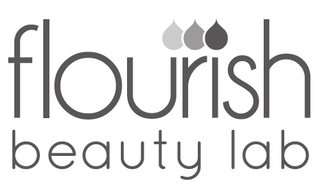
5 Expert Tips for Fixing Chapped Lips
Here Are 5 Tips to Care For Your Sensitive Lips.
Here is why it happens, how to prevent it and what to do to fix them.
Why Do My Lips Get So Chapped in the Winter?
The truth is that cold air doesn’t retain humidity very well. Moist air is usually warm air. So, cold air will pull moisture from the surrounding environment to balance. The result is that your lips tend to lose moisture faster than they can replenish it. (This is happening to the rest of your skin, too).
Add in the fact that:
- Lips have a thinner moisture barrier compared to the rest of the skin
- Lips don’t contain any oil glands to secrete natural moisture
You have the perfect scenario for sore, cracked lips. Ouch.
How Can I Fix and/or Prevent Chapped Lips This Winter?
1. Don’t Lick Your Lips
This one is easier said than done, but there are some really convincing reasons why you should avoid doing this. Remember how cold air tends to steal moisture from the surrounding environment? Well, every lick of your lips basically starts a wet-dry evaporation cycle that disrupts the skin’s natural barrier.
Also- saliva contains digestive enzymes so it is subtly breaking down the lips’ barrier and causing cracking. Trust me, you’re not doing yourself any favors! Stopping the licking cycle is one of the best things you can do to prevent chapped lips.
2. Skip the Lip Scrub. Instead, Exfoliate Your Lips With a Gentle Sugar Scrub or Soft Washcloth
Instead of a pre made lip scrub full of emulsifiers, preservatives and potentially irritating essential oils, try using a soft washcloth or adding sugar crystals to our gentle raw honey lip mask. These are safe ways to slough off the buildup of dead skin so your lip balm can moisturize more effectively. Both honey and sugar crystals are humectants that draw moisture to the area. That is what helps in healing-plus sealing the moisture in with a balm.
3. Check Your Lip Products for Potential Irritants Remember how I said you should avoid potential irritants in your lip scrubs? The same goes for all lip products (like glosses and lipsticks) as well as standard lip balms, too. Avoid using anything that leaves your lips feeling dry or plumping products that cause a tingling sensation. This sensation is actually a sign of irritation, so it’s definitely something you should try to avoid. Some potential irritants to look out for in these types of products include menthol, camphor, peppermint, fragrance, and essential oils.
***Expired lip balms are terrible irritants as well! This is not as common with petrolatum products which never go rancid-but petroleum is also not as beneficial as plant oils. Rancid lip balms will burn and irritate your lips as well as feeling dry and dragging on your lips.
What turns them rancid? Leaving them places where they will freeze/thaw/freeze/thaw-like the cupholder of your car. Put them in your pocket instead.
4. Protect Your Lips With SPF
Your lips contain fewer melanin-producing cells than the rest of your skin, which makes them more susceptible to UV damage. A lot of people overlook using SPF on their lips, but it’s an important step because it protects them against skin cancer and prevents the breakdown of collagen (which is what keeps our lips looking nice and plump). I suggest applying your mineral facial sunscreen over your lips on top of our lip balm. This is even more important if you’re into winter sports, like skiing, and you’re consistently exposed to UV rays.
5. Sleep With a Humidifier
Sleeping with a humidifier in your bedroom can help address one of the root causes of chapped lips in the winter—dry air. By keeping the air moist while you sleep, you won’t have to start at square one each morning, making up for lost hydration. The closer to your bed, the better.
Also-in case you were wondering, you cannot drink enough water to keep your lips and skin hydrated when the air around you is working against that. Yes, drinking water and keeping your internal organs hydrated is good. No, it will not reach your skin.
